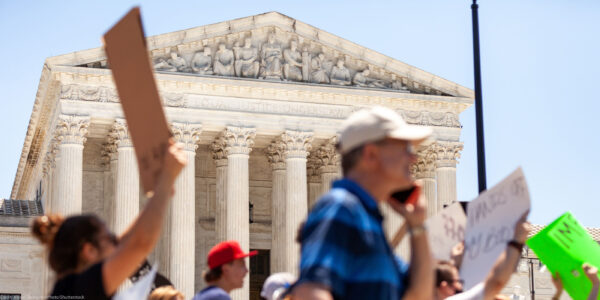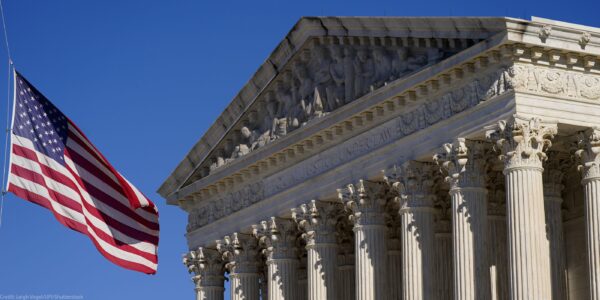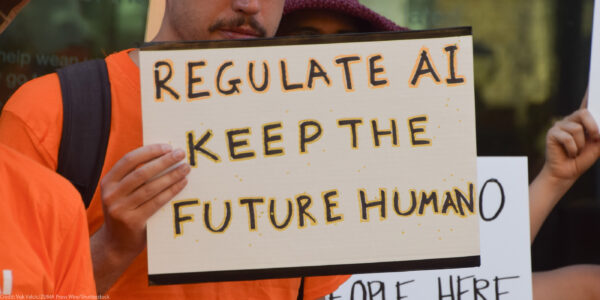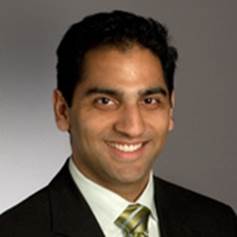
How to Win an Election From Jail
January 13, 2022
Joel Castón was incarcerated when he was 18 years old. He’s now 45 and in November of last year, just two months ago, Joel was released after serving over 26 years. While incarcerated, he received a degree through the Georgetown Prison Scholars Program and started a mentorship initiative called Young Men Emerging. And, because D.C. changed the law to allow incarcerated people to vote, he ran for office, and he won: he is now an Advisory Neighborhood Commissioner in Washington D.C. representing the 7th Ward including the jail that he just walked out of. He’s the first incarcerated person in D.C. history to win elected office. Joel joins us today to talk about his experience, what he’s focusing on as a newly elected commissioner in D.C., and how he’s changing the public narrative about incarcerated people.
In this episode
This Episode Covers the Following ë–ƒVlog
-
Access to the Courts and Counsel
-
Alternatives to Incarceration
-
Alternatives to Youth Incarceration
-
Civil Liberties
-
Civil Liberties in Prison
-
Criminal Law Reform
-
Cruel, Inhuman, and Degrading Conditions
-
Discrimination
-
Free Speech in Prison
-
Human Rights
-
Human Rights and Criminal Justice
-
Juvenile Justice
-
Parole and Release
-
Prisoners' Rights
-
Race and Criminal Justice
-
Race and Economic Justice
-
Racial Justice
-
Sentencing Reform
-
Smart Justice
-
Youth Incarceration
Related Content
-
News & CommentaryAug 2025

Civil Liberties
Your Questions Answered: The Supreme Court's Impact On Our Rights. Explore News & Commentary.Your Questions Answered: The Supreme Court's Impact On Our Rights
The court's rulings—and its shifting procedures—signal lasting threats to civil liberties.By: Hibah Ansari -
Wisconsin Supreme CourtJul 2025

Civil Liberties
+2 ë–ƒVlog
State V. K.r.c.. Explore Case.State v. K.R.C.
This case asks whether a 12-year-old boy was in custody and entitled to Miranda warnings during a closed-door police interrogation by a school resource officer in the school building. The court of appeals held that he was not in custody, not entitled to Miranda warnings, and voluntarily incriminated himself. The ACLU‚Äôs State Supreme Court Initiative and the ë–ƒVlogof Wisconsin filed an amicus brief arguing that admitting the boy‚Äôs statements into evidence not only violated the Fifth Amendment to the U.S. Constitution but Article I, Section 8 of the Wisconsin Constitution, and urging the Wisconsin Supreme Court to rest its decision on the state charter to better protect Wisconsinites‚Äô civil liberties.Status: Ongoing -
News & CommentaryJul 2025

Civil Liberties
Takeaways From The Supreme Court's Term. Explore News & Commentary.Takeaways from the Supreme Court's Term
This term was marked by sharp right turns in major civil rights cases, a mixed record on lower-profile cases, and mixed outcomes in an ascendant emergency docketBy: Cecillia Wang -
News & CommentaryJul 2025

Civil Liberties
Privacy & Technology
As Ai Gains Power, We Must Push For Guardrails To Protect Civil Liberties. Explore News & Commentary.As AI Gains Power, We Must Push for Guardrails to Protect Civil Liberties
As AI increasingly makes decisions in hiring, policing, and social services, the ACLU’s Civil Rights in the Digital Age Summit focuses on promoting responsible AI design to ensure technology protects rights and serves justice for all.By: Ijeoma Mbamalu

